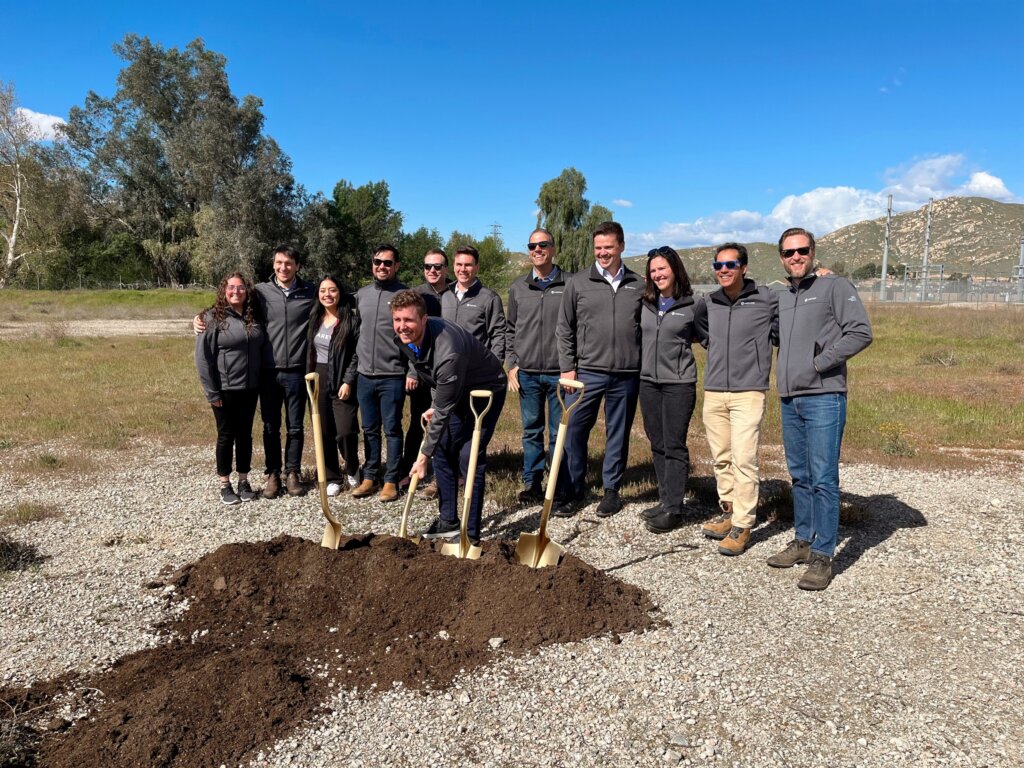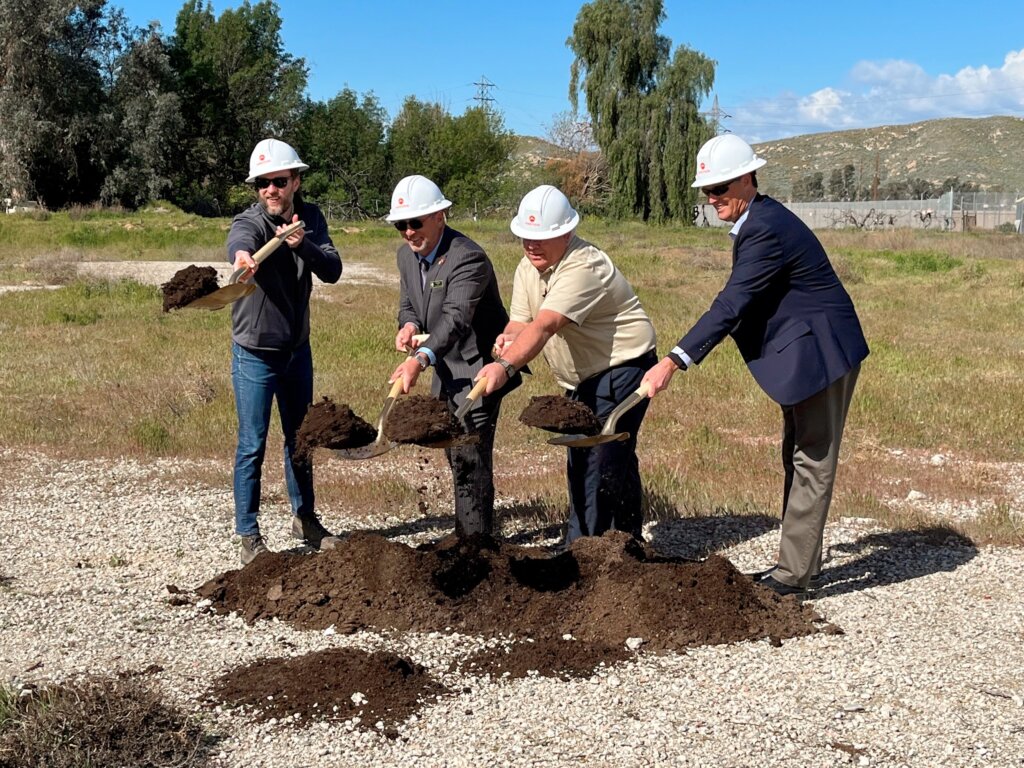New utility-scale battery storage facility will support a more reliable and resilient energy grid
SAN BERNARDINO COUNTY — Today, Arevon Energy, Inc. broke ground on the Condor Energy Storage Project, a new battery storage facility in San Bernardino County. Once complete, the 200-megawatt (MW)/800 megawatt-hour (MWh) project, which will use Tesla Megapack, will be able to discharge stored energy to the local electrical grid during times of peak energy demand.
Today’s groundbreaking celebrates the first of several battery storage projects that Arevon is developing in collaboration with Tenaska to support local energy reliability and maximize the use of clean, renewable energy sources as California transitions away from fossil fuels. According to the California Independent System Operator (CAISO), which oversees the operation of the state’s energy grid, reaching California’s goal of a carbon-free grid by 2045 could require as much as 48,000 MW of battery storage.
“Arevon is proud to advance the Condor storage project, which will provide a safe, reliable, and cost-effective alternative to fossil fuels, meeting the energy needs of Grand Terrace and the surrounding community,” said Aron Branam, Vice President of Development at Arevon. “This is a huge step forward in our work to bring clean energy solutions to communities across California.”
Battery storage adds greater reliability and resiliency to the electrical grid. During times of peak energy generation, such as when power from solar or wind is in abundance, batteries can be charged to capture excess generation. Batteries can then discharge this stored energy into the grid during peak energy demand.
“The City of Grand Terrace is excited to welcome this project and Arevon’s investment in our residents and community,” said Grand Terrace Mayor Bill Hussey. “The Condor project will help create more local jobs, support our local economy, and increase our energy reliability.”
The Condor project site in Grand Terrace was formerly home to the Highgrove Steam Plant, which operated in some capacity from 1952 to 2001.
“The project site location has a history of supporting regional energy needs, so it’s ideal for the Condor project, which will power the transition to more renewable energy sources,” said Tim Hemig, Senior Vice President in Tenaska’s Development Group. “It represents California’s continued evolution toward a more reliable and sustainable energy future.”
Construction of the Condor project is expected to span one year. At the peak of construction, approximately 50 to 75 local workers will be on-site. The project will include improved streetscapes, including decorative block walls, landscaping, and sidewalks.


